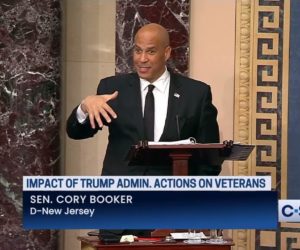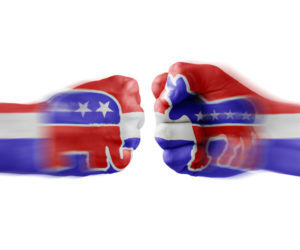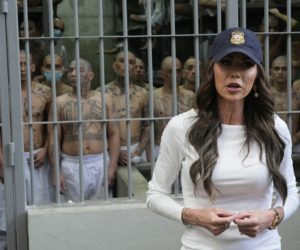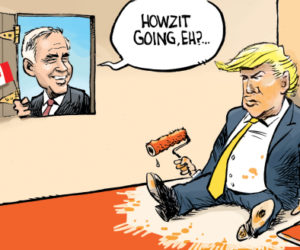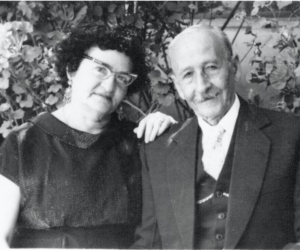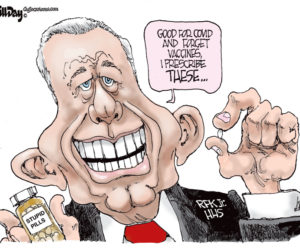
Indian Prime Minister Manmohan Singh and US President George W. Bush have a reason to celebrate. In a way the triumphant nail-biting passage on Tuesday of the India-US Nuclear Deal in the Indian Parliament is their personal victory.
“The U.S. will urge other board members of the International Atomic Energy Agency to support an inspection plan tied to the accord during a meeting on Aug. 1,” State Department spokesman Gonzalo Gallegos said in Washington.
“The 2005 accord signed between Singh and Bush gives India access to fuel and nuclear reactors without joining the 1970 Nuclear Non-Proliferation Treaty. It would lift restrictions imposed on suppliers to provide India with atomic technologies since it tested a nuclear weapon in 1974 without being listed as an atomic weapons state.
“India can now seek the nuclear deal’s approval from the IAEA and the Nuclear Suppliers Group, a mandatory requirement before the U.S. Congress can ratify it. White House spokeswoman Dana Perino predicted approval in Congress should the plans succeed with the IAEA and the 45-nation suppliers group.” More here…
It was a tough battle for the Indian prime minister who staked his government’s survival on the parliamentary vote. And it was a close call. The Congress party-led government won with 275 lawmakers voting for it and 256 against. The number of abstentions was not immediately clear, although not all 543 members of Parliament’s lower house took part in the vote.
“The vote capped a week of intense politicking that saw the government rename an airport for a lawmaker’s father, promise a high-level job to another, and — rival politicians allege — hand out millions of dollars to many others in an effort to survive.” More here…
Although this landmark development is a major milestone in India-US economic and strategic relationship, nearly half the Indian lawmakers have opposed the deal in its present form. Meanwhile the ‘Marketing Guru of the World’ Dr. Jagdish Sheth, Professor of Marketing in the Goizueta Business School, Atlanta, USA, today asked India to look at issues in a “multi-centric” way instead of the present US-centric prism.
Sheth predicted that India and China, along with the United States, would form the “emerging geoeconomic triad” replacing the US-Canada, European Union and Japan triad. He said the 21st century would certainly belong to ‘Large Emerging Nations (LEN)’ as the 19th century belonged to America and 18th century to Europe. He said LEN would consist of India, China, Russia, Brazil and other emerging countries.
Author of the famous book ‘Chindia Rising: How China and India will benefit your business’, Dr Sheth predicted redefining of capitalism and democracy with compassionate capitalism, disciplined democracy and worldwide rise of spiritualism. More here…
Swaraaj Chauhan describes his two-decade-long stint as a full-time journalist as eventful, purposeful, and full of joy and excitement. In 1993 he could foresee a different work culture appearing on the horizon, and decided to devote full time to teaching journalism (also, partly, with a desire to give back to the community from where he had enriched himself so much.)
Alongside, he worked for about a year in 1993 for the US State Department’s SPAN magazine, a nearly five-decade-old art and culture monthly magazine promoting US-India relations. It gave him an excellent opportunity to learn about things American, plus the pleasure of playing tennis in the lavish American embassy compound in the heart of New Delhi.
In !995 he joined WWF-India as a full-time media and environment education consultant and worked there for five years travelling a great deal, including to Husum in Germany as a part of the international team to formulate WWF’s Eco-tourism policy.
He taught journalism to honors students in a college affiliated to the University of Delhi, as also at the prestigious Indian Institute of Mass Communication where he lectured on “Development Journalism” to mid-career journalists/Information officers from the SAARC, African, East European and Latin American countries, for eight years.
In 2004 the BBC World Service Trust (BBC WST) selected him as a Trainer/Mentor for India under a European Union project. In 2008/09 He completed another European Union-funded project for the BBC WST related to Disaster Management and media coverage in two eastern States in India — West Bengal and Orissa.
Last year, he spent a couple of months in Australia and enjoyed trekking, and also taught for a while at the University of South Australia.
Recently, he was appointed as a Member of the Board of Studies at Chitkara University in Chandigarh, a beautiful city in North India designed by the famous Swiss/French architect Le Corbusier. He also teaches undergraduate and postgraduate students there.
He loves trekking, especially in the hills, and never misses an opportunity to play a game of tennis. The Western and Indian classical music are always within his reach for instant relaxation.
And last, but not least, is his firm belief in the power of the positive thought to heal oneself and others.


